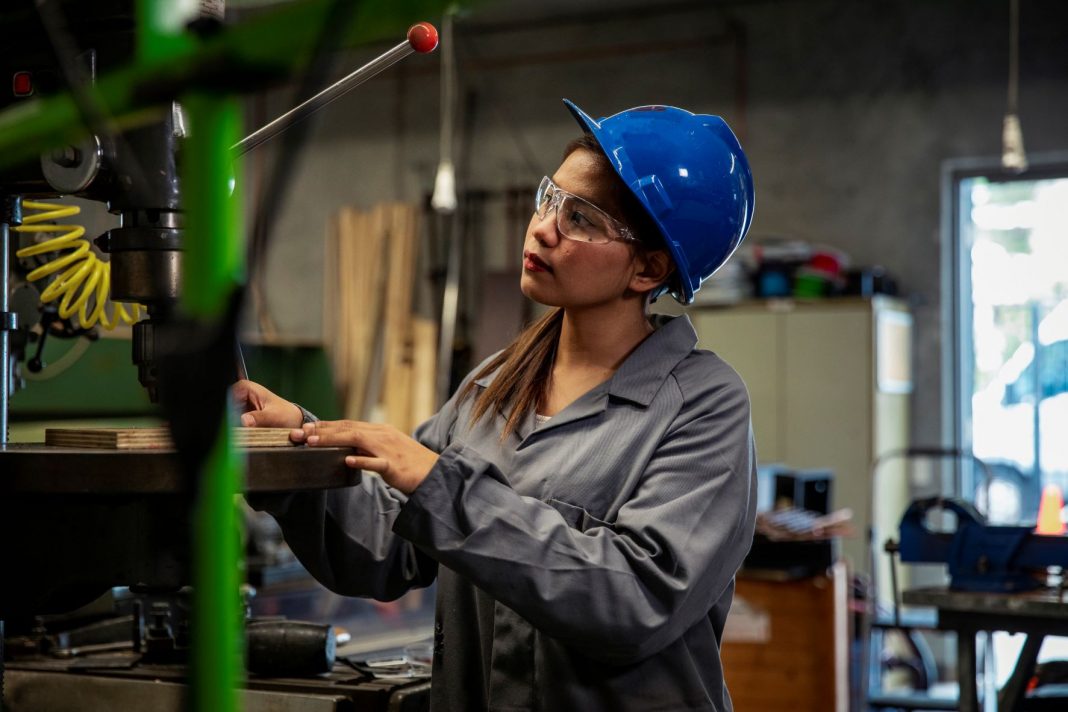For Australia to genuinely achieve gender equality, closing the gender pay gap is top of the to-do list.
Today, 31 August, is Equal Pay Day and would usually be cause to celebrate the milestones and collective achievements of women past and present in the fight or equality, but this year YWCA Canberra are choosing not to pop the champagne just yet.
A report from the Workplace Gender Equality Agency (WGEA) released this month shows the COVID-19 pandemic has reversed progress made to close the gender pay gap, and reveals women must work an average of 61 additional days each year to earn the same amount as men.
YWCA Canberra says the gender pay gap is a significant barrier women face in the workforce and this discrimination harms women’s careers, their immediate financial stability, and long-term financial sustainability.
Since 2020, the national pay gap for full-time employees has grown to 14.2 per cent, making the average weekly income difference between genders $261.50.
CEO of Canberra YWCA Frances Crimmins says too many people in leadership still deny the existence or significance of this gap, which leads to lack of needed action.
“The caring and social services industries have significantly lower pay than occupations in the construction industry,” Ms Crimmins says.
“Remuneration is a reflection of the social and financial value we give to jobs and this disparity is because traditionally ‘female’ jobs are considered less valuable – this needs to change.”
WGEA reported that in the 12 months between May 2020 and May 2021, the biggest difference between women’s and men’s average weekly earnings when working full-time is the highest in Professional, Scientific and Technical Services (25.3 per cent), Financial and Insurance Services (24.1 per cent), and Health Care and Social Assistance (20.7 per cent).
When comparing the private and the public sector, the gender pay gap is significantly higher in the private sector, sitting at around 17.5 per cent while the public sector reported a 10.8 per cent gap in May 2021.
When it comes to age groups, the gender pay gap is at its largest for people in the over-55 age group at 17.7 per cent due to women in this age category more likely to have spent time out of the workforce to care for children and other family members.
This extra time for women in unpaid caring roles results in fewer promotion opportunities and a lower chance of holding higher paid jobs compared to men who are less likely to have taken time off their career to care for children or family member.
The gap is at its lowest for the under 20 age group, sitting at 1.9 per cent, due to the majority of women unlikely to have had children by this age.
This significantly jumps to a gap of 14.2 per cent for women in the 21 to 34 age band.
In order to address the gender pay gap in Australia, WGEA has released a second report with recommendations to assist organisations in a range of industries, specifically human resources practitioners, CFOs, COOs, recruitment managers and employees, and diversity practitioners.
The report outlines six steps to improving pay equity:
- Awareness and understanding: Develop a basic understanding of the key issues surrounding pay equity
- Build a business case: Articulate why pay equity is important for your organisation
- Gain leadership commitment: Secure buy-in from the leadership team to investigate and address pay equity issues
- Data analysis: Identify any gender pay gaps and investigate the causes
- Strategy and action: Build a clear set of goals and action plans to improve pay equity
- Review and refine: Monitor and review pay equity continuously
Ms Crimmins said YWCA Canberra provides above-award wages for their staff within early childhood education and care services, helping to close the gap for the women on their payroll.
“As a WGEA Pay Equity Ambassador and an employer in the early childhood education and care sector – a low-paid, women-dominated industry – I am continuing to fight for recognition of the professionalism of the sector and for better pay and conditions of the many educators who help children have the best start possible,” she said.
“But the award needs to increase.”
The YWCA’s Board Traineeship program for skilled women leaders is open for nominations until Sunday 12 September; applications can be submitted via their website.



